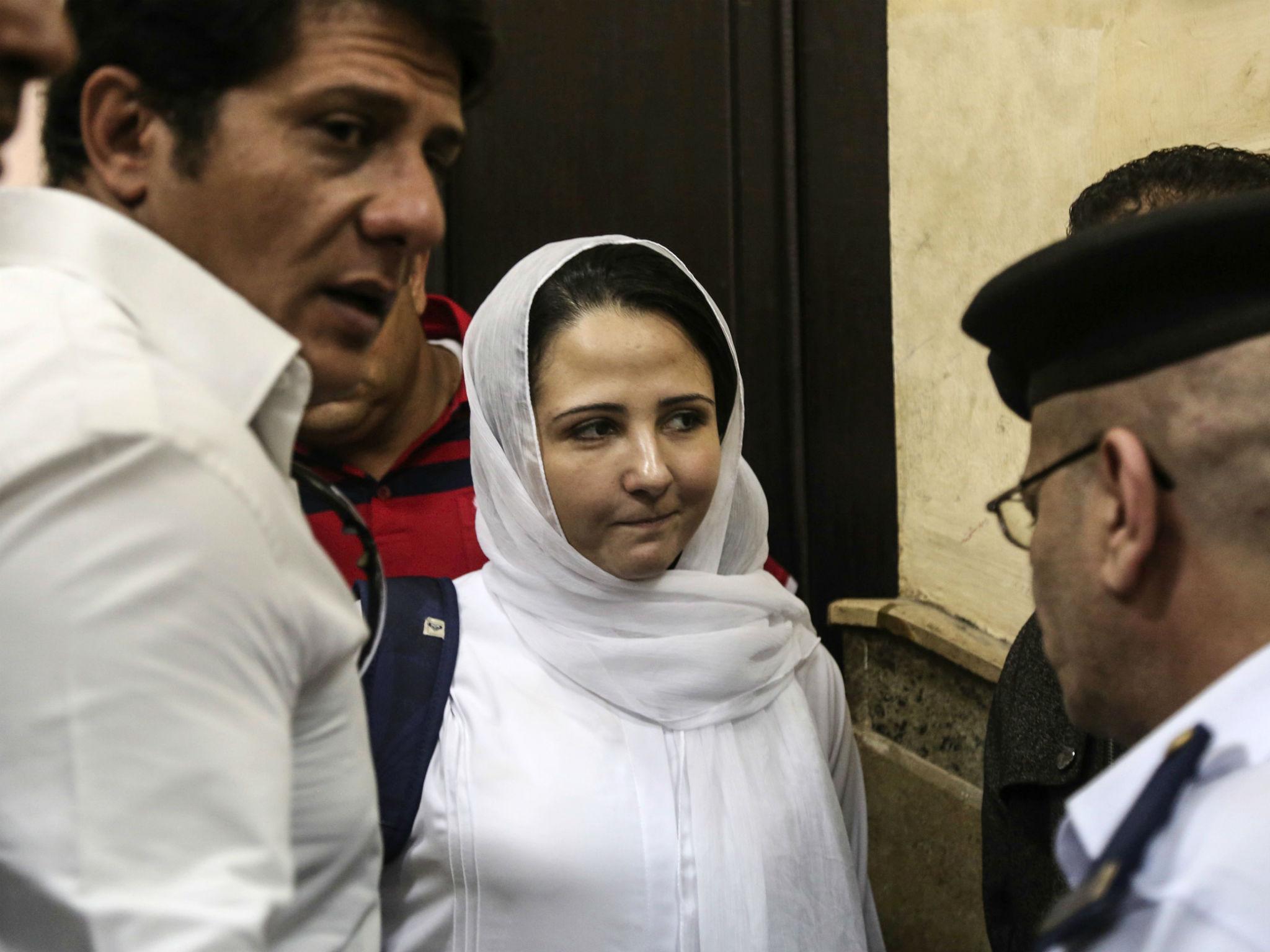Cairo street children aid worker acquitted of kidnap and trafficking after years in detention
Aya Hijazi, her husband and employees, were held for more than 1,000 days in illegal pre-trial detention

Your support helps us to tell the story
From reproductive rights to climate change to Big Tech, The Independent is on the ground when the story is developing. Whether it's investigating the financials of Elon Musk's pro-Trump PAC or producing our latest documentary, 'The A Word', which shines a light on the American women fighting for reproductive rights, we know how important it is to parse out the facts from the messaging.
At such a critical moment in US history, we need reporters on the ground. Your donation allows us to keep sending journalists to speak to both sides of the story.
The Independent is trusted by Americans across the entire political spectrum. And unlike many other quality news outlets, we choose not to lock Americans out of our reporting and analysis with paywalls. We believe quality journalism should be available to everyone, paid for by those who can afford it.
Your support makes all the difference.A woman who worked with street children in Cairo has been acquitted by Egyptian authorities of kidnapping and human trafficking.
US-Egyptian dual citizen Aya Hijazi was arrested alongside her husband, Mohammed Hassanein, and six others in May 2014 on charges of abusing children in her care, as well as participating in human trafficking, sexual exploitation and torture. Human rights activists said the charges were invented, and part of a government crackdown on civil society, which sought to portray aid groups with foreign funding as unpatriotic.
Ms Hijazi faced five years hard labour or life behind bars. There were cheers in the courtroom as she and seven others were acquitted after 1,079 days of illegal pre-trial detention.
Campaigners, including Hillary Clinton, having long called for the 30-year-old’s release.
The trial was delayed several times for what the human rights groups called absurd pretexts, such as the inability to turn on a computer at a court hearing. On 24 March, the verdict was delayed again, prompting Human Rights Watch to call the case a “travesty of justice”.
Following her arrest, it took days for Ms Hijazi’s family to track her down in the prison system and she waited four months to be charged.
They have spent more than 1,000 days in pre-trial detention, despite a forensic science report by Egypt’s public prosecutor which found no evidence that the children in her care had been sexually assaulted. Some of the children did show signs of sexual trauma but the abuse was alleged to have happened before 2014.
A report from the Bar Human Rights Committee of England and Wales found that her case had violated both international laws and Egypt’s constitution.
President Abdel Fatah al-Sisi, who has forged close links with US President Donald Trump in the past two weeks, has presided over the widest crackdown in the country in its history, targeting journalists, NGOs and political opponents.
Ms Hijazi’s case became a high-profile symbol of an oppressive regime.
Mr Hassanein said he and his wife wanted to return to work with the street children, but were unsure whether the government would allow them to do so.
Join our commenting forum
Join thought-provoking conversations, follow other Independent readers and see their replies
Comments